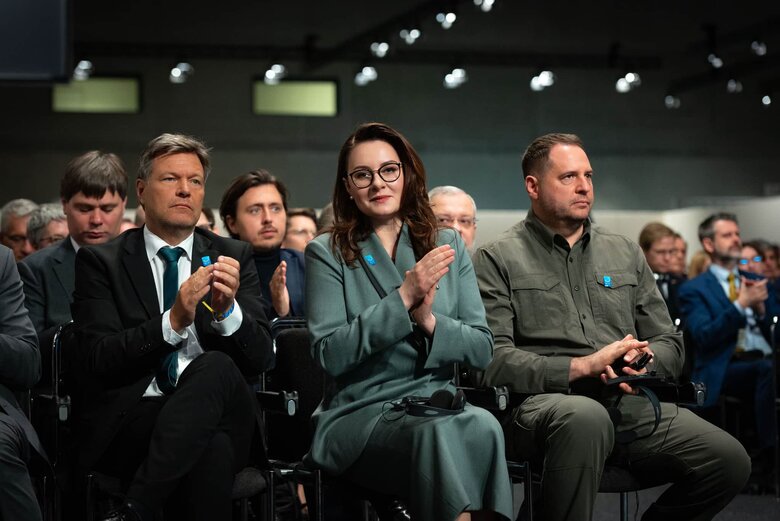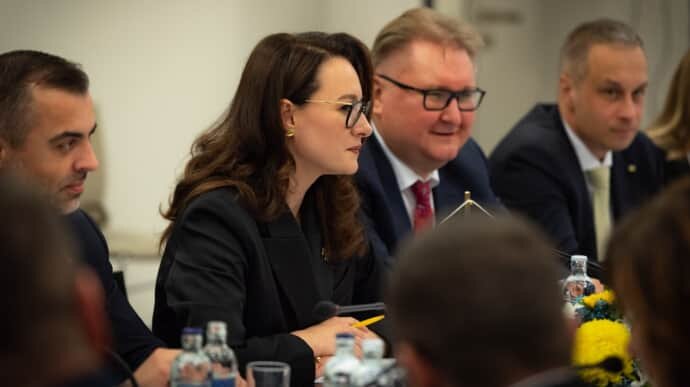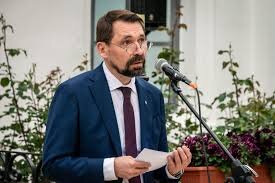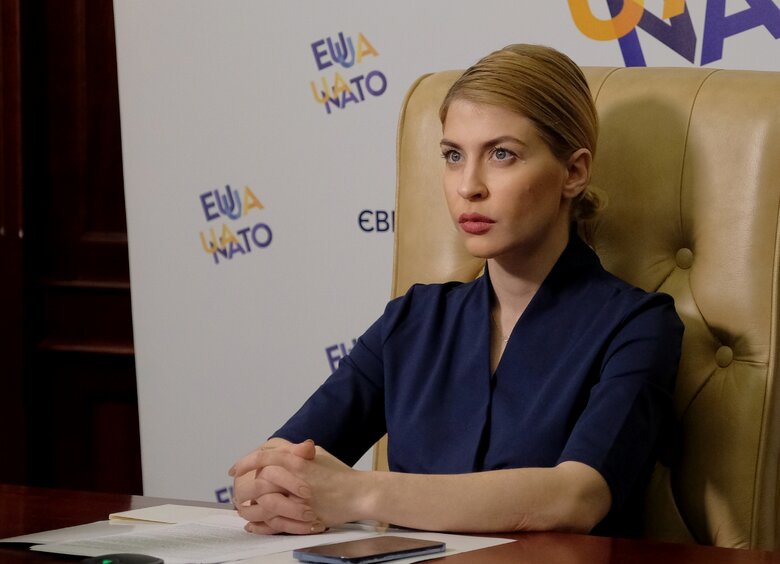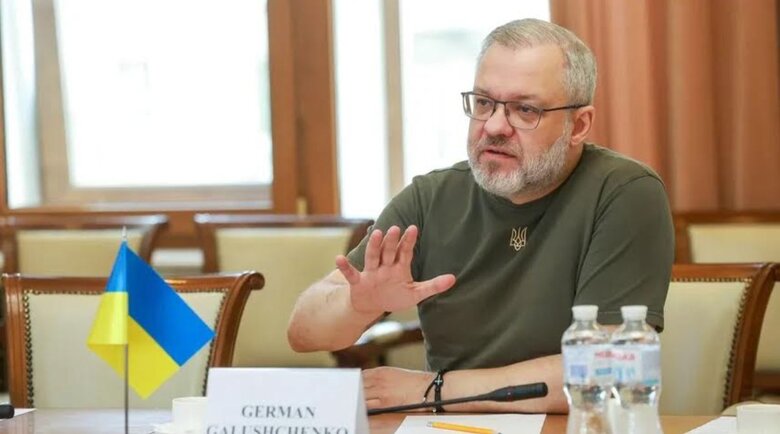Yuliia’s Cabinet of Ministers: Why Stefanishyna is heading to Brussels, while Halushchenko might be transferred to Ministry of Justice
On July 16, the Verkhovna Rada is set to appoint Yuliia Svyrydenko as Ukraine’s Prime Minister. This marks the end of a year-long saga over the change of the premiership.
How Yuliia Svyrydenko reached this point and how she plans to reshape the Cabinet of Ministers will be covered further in the Censor.NET article.
Plans to replace Denys Shmyhal, who already holds the record for the longest time in office, with Deputy Prime Minister Yuliia Svyrydenko became known a year ago. At that time, media reported that the president was "tired" of Shmyhal, and Andriy Yermak wanted a more loyal prime minister.
The reshuffle failed a year ago for two reasons, Yuliia Svyrydenko lacked public visibility, and Shmyhal was backed by the "Servant of the People" faction leader Davyd Arakhamiia’s team. They managed to keep the prime minister, partly due to the opposition blocking the rostrum.
However, it was clear the reshuffle would happen based on the treatment of Shmyhal and Svyrydenko at events attended by the president. It was hard to miss that Yuliia Anatoliivna was given the floor first after the president, with the incumbent prime minister only speaking later.
Over the past year, Svyrydenko has done a lot to improve her public profile. She led negotiations and signed the agreement with the United States. Credit must also go to her team, which did tremendous work transforming a completely unacceptable document into something suitable and even beneficial for Ukraine.
During the conference on Ukraine’s recovery in Rome alone, about 200 agreements and memorandums worth a total of 11 billion euros were signed and Svyrydenko, not Shmyhal, signed them.
So it can be said that Svyrydenko didn’t just "earn" her position, she truly "deserved" it.
Although opponents may say she wouldn’t hold this position without strong loyalty to Andriy Yermak.
In this context, two cases stand out, the Ministry of Economy under Svyrydenko was involved in imposing sanctions against Petro Poroshenko, and people from the Ministry tried to block the competition for the head of the Bureau of Economic Security, where the commission eventually selected NABU detective Oleksandr Tsyvinskyi as the winner.
Still, none of this can overshadow that the Ministry of Economy under Svyrydenko’s leadership was one of the most effective. For example, without its role, the resumption of non-lethal procurement by the Ministry of Defense on Prozorro would have been impossible.
The only issue regarding Svyrydenko’s appointment so far was not about votes, but about a legal violation. Under the martial law legislation, it is prohibited to terminate the Cabinet’s powers. Some "Servants" even pointed out the impossibility of such a decision.
For example, Fedir Venislavskyi emphasized that "according to the law on the legal regime of martial law, the Cabinet of Ministers’ powers cannot be terminated, and the resignation of the prime minister entails the resignation of the entire government, which is illegal. There are no legal mechanisms, even hypothetically, to implement a government change scenario without amendments to the legislation."
Moreover, according to the Constitution, the government’s composition should be proposed by the parliamentary coalition. Yet, as of 11 a.m. on July 16, the "Servant of the People" deputies had no idea who would ultimately be in the Cabinet of Ministers.
"We will have a formal meeting with Svyrydenko, and the rest will be told to us at the last minute, as usual," admitted one of the "Servants."
So, who will stay in the government, and who will leave? This is an important arrangement, especially since the future prime minister played a key role in this process and showed an unprecedented level of agency, which commands respect.
Who’s staying? Foreign Minister Andrii Sybyha, Interior Minister Ihor Klymenko, Finance Minister Serhii Marchenko, Health Minister Viktor Liashko, Minister for Veterans’ Affairs Nataliia Kalmykova, and Youth and Sports Minister Matvii Bidnyi.
Deputy Prime Minister and Minister of Digital Transformation Mykhailo Fedorov will be promoted to First Deputy Prime Minister.
The most unexpected and key reshuffle is, of course, Denys Shmyhal becoming Minister of Defense, while current minister Rustem Umerov is appointed ambassador to the United States.
Besides Shmyhal, the Defense Minister position was also considered for Minister Klymenko, who declined, as well as Mykhailo Fedorov and Oleksandr Kamyshin. However, appointing either of the latter two would have seriously disrupted the balance among drone market groups and favored one faction, which is undesirable.
Secondly, it’s hardly likely that Kamyshin could be entrusted with the Ministry of Defense after the issues involving the Pavlohrad Chemical Plant (PCH) and the Ministry of Strategic Industries. To recall, in 2024, at the insistence of the Ministry of Strategic Industries and through the Commander-in-Chief’s Headquarters, the Pavlohrad Chemical Plant was contracted to produce ammunition volumes far exceeding its capacity. This ultimately led to missed deadlines and delayed delivery of various weapon types, as well as more than 20,000 faulty mines supplied to the front.
The only logical consequence is that in the current Cabinet format, Kamyshin’s ally, Herman Smetanin, is not just losing his position, the entire ministry is being dissolved and merged into the Ministry of Defense.
Education and Science Minister Oksen Lisovyi was expected to resign, partly for closing schools in territorial communities and partly because no real education reform has taken place. But Mykhailo Fedorov defended him.
And then we will talk about those who are leaving or undergoing unexpected reshuffles.
Changes in this Cabinet won’t come without creating new monsters. And merging the Ministry of Strategic Industries into the Ministry of Defense is not the only consolidation.
The Ministry of Agrarian Policy is once again being merged into the Ministry of Economy, which will be headed by Svyrydenko’s deputy, Oleksii Soboliev. After Oleksandr Solskyi’s dismissal, Vitalii Koval, who was transferred here from the State Property Fund, made no notable impact. So the authorities are once again dissolving the Ministry of Agrarian Policy. But that’s not all, the Ministry of Ecology will also be merged in.
"Maybe this is being done as part of an agreement with the US, so that licenses and everything else are in one place," suggested one "Servant" deputy.
Social Policy Minister Oksana Zholnovych is leaving her post, to be replaced by First Deputy Minister of Finance Denys Uliutin.
Culture Minister Oleksandr Tochytskyi announced yesterday at a parliamentary committee that he is resigning and returning to diplomatic service. The minister, remembered mainly for scandals involving Sophia and Lavra and the dismissal of museum directors, is returning to his professional field and will serve as Ukraine’s permanent representative to the Council of Europe.
Who will be the next Culture Minister is still unknown. "Today there’s an interview with a strong candidate. Hopefully, the president will persuade her. If not, they’ll probably appoint Hryhorenko as acting minister," a Censor.NET source said.
One of the main contenders for the Ministry of Culture is Veronika Seleha, former head of the Humanitarian Policy Directorate at the President’s Office and CEO of the Ukrainian creative agency Bickerstaff.345.
To bury the biggest corruption scandal of the past month, the Minister of National Unity Oleksii Chernyshov, suspected of receiving illegal gains exceeding 14.5 million hryvnias, will not only be dismissed, his Ministry of Unity will be completely abolished. A fitting end for a ministry created just for one person.
Justice Minister Olha Stefanishyna will also lose her post, after a month marked by journalistic investigations into apartments owned by her and her relatives, as well as a scandal involving forcing Ministry of Justice employees to use her photo as a screensaver.
But it’s not just about scandals. "Olia (Stefanishyna) has a conflict with Svyrydenko. Even Bolivar couldn’t handle two," said a Censor.NET source in government.
- "So, no more Stefanishyna photos on phones?" the article’s author joked.
- "There will be, but somewhere in Brussels," replied another government source, adding that Stefanishyna will become Ukraine’s ambassador to the European Union.
Meanwhile, at Svyrydenko’s insistence, Taras Kachka, Deputy Minister of Economy and one of the key negotiators of the agreement with the US, is appointed Deputy Prime Minister for Eurointegration.
The transfer of Stefanishyna to Brussels led to another very unexpected reshuffle. The current Energy Minister, Herman Halushchenko, may become the new Minister of Justice.
It’s worth noting that Halushchenko has been a pillar of Bankova’s energy policy all these years. His attempts to monopolize influence over Ukrenergo and to purchase nuclear reactors from Bulgaria have caused multiple scandals.
His current position will be taken over by the current Minister of Ecology and former Halushchenko deputy, Svitlana Hrynchuk.
In response to the joke about what Halushchenko will do without control over nuclear energy, deputies responded less than favorably: "The Ministry of Justice has prisons… and civil registry offices. He’ll manage somehow. And Hrynchuk, so to speak, is not a stranger."
"All officials nowadays aren’t entirely independent, but she is constructive, non-confrontational, and knows how to communicate," one deputy described Hrynchuk.
Interestingly, according to one version, Halushchenko’s reshuffle also didn’t happen without Svyrydenko’s influence. "He was running around trying to make decisions behind her back, but apparently got nowhere," said a source.
So, although known as someone comfortable for Yermak, Svyrydenko instead demonstrates remarkable agency and the ability to assert her position as the right one.
Tetiana Nikolaienko, Censor. NET

